“To fulfill a dream, to be allowed to sweat over lonely labor, to be given a chance to create, is the meat and potatoes of life. The money is the gravy.“
( Bette Davis )
Bette Davis was one of the most celebrated actresses to ever grace the silver screen. Her indomitable presence coupled by her sheer intensity were among her greatest assets that helped signify her reputable star status, but as powerful as she was, Davis had to struggle and fight her way to the top of the ladder.

From the moment she arrived on Hollywood soil in the Winter of 1930, Bette Davis discovered that she would have to reach high for her dreams. As she was growing up, Davis had become accustomed to getting things her way, but in the early days of her cinematic career, Bette soon realized that Hollywood was not willing to cater to her strong demands.
For years, young Bette Davis had dreamed about visiting Hollywood and conquering the world, but on her arrival in the sun-drenched paradise with the palm-tree lined streets, Davis could feel her dreams shattering. Los Angeles was not the place she had envisioned. She had expected to receive full movie-star treatment and a warm welcoming. Instead, she disembarked the train at foreign territory with no studio cars there to greet her.
Bette Davis’ entrance into motion pictures can be described as tumultuous and often times humiliating. After the harrowing train station ordeal when Davis and her mother Ruthie stepped foot on an empty platform and were forced to find their own way to the studio, Davis was summoned to the office of Carl Laemmle who immediately quipped, “She has as much sex appeal as Slim Summerville”. Episodes like this really bruised her confidence, but as the criticisms mounted, Bette learned that the only way to survive in Hollywood was to be tough.
Hollywood was always eclipsing talent and experience with sex appeal and beauty. When Bette Davis arrived on the scene, she was viewed as awkward, unattractive and automatically she was made to feel like a misfit trapped behind those iron gates of Universal. All she wanted to do was act, but when nobody wanted her, she desperately searched for a way to elude her miserable situation and return to New York, but the problem was, she was tied to a three month contract.
As hard as it was, Bette managed to endure the boredom. She spent her days posing for photos and doing screen-test after screen-test until Carl Laemmle announced that he was considering terminating Davis’ contract. Bette couldn’t be happier when she heard the news. Her experience in Hollywood was full of misfortunes, and with no acting roles being offered, she wanted to leave. Coincidentally, Karl Freund had other ideas. He thought Davis had unique eyes, and wanted her for the role of Laura Madison in The Bad Sister ( 1931 ).
After spending weeks biding her time on the studio lot, Bette Davis finally made her film debut in The Bad Sister, a Hobart Henley directed production that also brought Humphrey Bogart to the spotlight. Neither Davis or Bogart made a considerable impression, but it did land them roles in other films, though success and critical acclaim was not imminent.
Her film appearances that followed failed to do anything to enhance Bette’s reputation, and after making a total of six unsuccessful films, Universal decided to terminate Davis’ contract. Bette Davis had once conjured up the highest fantasies of becoming a prominent and extremely revered motion picture actress, but here she was, despondent and ashamed that her days in Hollywood were over. She would have to return to New York a failure.
The chapter of events that ensued next are the stuff of legend. As the story goes: A teary eyed Bette and her mother Ruthie were packing their cases ready to return to New York that same day when suddenly the telephone rang. On the other end of the phone was legendary actor, George Arliss, who told Bette that she would be the ideal female lead to play opposite him in The Man Who Played God ( 1932 ) and wanted her to report to Warner Bros. that afternoon.
George Arliss not only rescued Bette from destruction. He became the instrumental force behind the resurrection of Bette Davis. If it was not for Arliss saving her that day, Davis would have returned to New York, and the world may have never discovered the unparalleled unique artistry that Bette possessed.
In the years that proceeded, Davis always credited George Arliss for establishing her career. The Man Who Played God garnered Bette the recognition that she so rightly deserved, and Warner Bros. was that impressed with her performance that they signed her to a five year contract.
For the next eighteen years, Bette Davis called Warner Bros. her home. She would go on to make some of her most acclaimed productions with the studio, but like a large majority of newcomers, immediate prosperity was not on the doorstep. She was cast in a succession of films that fared moderately at the box-office, though Bette Davis was yearning to be acknowledged.
After appearing in sixteen films for the studio, Bette Davis made her breakthrough performance as Mildred in Of Human Bondage ( 1934 ). The film was a hit at the box office, and Davis’ performance was revered by both critics and the general public, but to get this far, Bette had to be loaned out to RKO to attain the accolades that she was desperately seeking. Initially, Jack Warner was reluctant about sending Bette to RKO. He thought that playing a shrewish character like Mildred would destroy her glamorous image, but to his amazement, the film restored Bette’s reputation.
Of Human Bondage cemented Bette Davis in a reputable position on the cinematic charts, and for the first time in her life, she felt that success was looming. Davis couldn’t have been more correct. The following year she received an Academy Award for Dangerous. In the film Davis played Joyce Heath, a washed-up former Broadway star whose destructive path of alcoholism sends her on a downward spiral.
Her next project was The Petrified Forest ( 1936 ), which teamed her with Leslie Howard and Humphrey Bogart, her co-star from The Bad Sister. The film was based on the 1935 Broadway production that featured both Howard and Bogart in his first leading theatrical role. On it’s release, the film garnered critical acclaim, and helped established Bogart’s career in motion pictures.
Despite the success of The Petrified Forest and all of her previous achievements, Bette Davis was cast in a series of undistinguished films that had the capability of decimating her eminent status. After attaining her first Academy Award, Davis had confidence in herself, and her hopes of starring in a prestige production had elevated, but when she was obtaining mediocre scripts, her dreams began to unravel.
Shortly after, she was assigned the role of Valerie Purvis in Satan Met A Lady ( 1936 ), an uninspiring adaptation of Dashiell Hammett’s novel, The Maltese Falcon, which was remade into an enduring classic five years later with Humphrey Bogart as the lead. Upon reading the script, Bette was incensed. She vied for quality material and did not want to have anything to do with the film. The only way to escape the project was to consult with Jack Warner, who assured her that she would have pivotal assignments on the horizon if she agreed to make the film.
Once again, Bette had developed high hopes, but was let down with the arrival of the next script for a film titled, God’s Country and the Woman. This time Bette was not about to let anyone persuade her to star in the picture. As much as Jack Warner enticed her, Bette continued to stay firm on her promise. As a result, her salary was stopped and she was put on a three months suspension, but Bette didn’t care. Instead, she embarked on a vacation to Leguna Beach while the cast and crew for God’s Country and the Woman left for location shooting in Washington.
After a long vacation at Leguna Beach, Bette refused to leave. If she couldn’t influence decisions and have full control of her career, she was not about to crawl back to the studio that never gave her the power of selectivity. For a while she considered accepting other offers from production companies that would allow her the freedom she yearned for, but with the standard contract that she was currently on, this was deemed impossible.
In her absence, Warner Bros. was having a field day. Fabricated stories that depicted Bette as a greedy and ungrateful antagonist were being printed. These articles left Davis feeling like a villain instead of a victim who was constantly relegated to secondary roles in menial low-budget productions. This kind of publicity was degrading and could have easily sabotaged Davis’ career if the delicate situation was not handled appropriately.
The altercations between Bette and Warner Bros. were only exacerbating with each printed article. She tried to reason with Jack Warner by requesting a new deal – a one year contract that came with the option of renewing for another five years. The salary would be $100,000 for the first year and rising as high as $220,000 as the years progressed. This deal also came with other bonuses that included: Three months of vacation, a work schedule that would allow her to star in no more than four films per year. After designing her proposed contract, Bette stated that if her terms were not approved, she would refuse to work until something more plausible gets set in concrete.
Unfortunately for Bette, Jack Warner was not about to accept her proposal. His reply came in the form of a three month suspension notice. This ordeal also spawned a deluge of printed publications that painted Bette Davis as an overly demanding and rebellious star whose most pivotal goal was to chase after a large sum of money. The accusations that were made against Bette threatened to thwart her career as well as putting her in a bad light. As a result of all this, her chances of being hired by any other producer in the country was impossible – nobody wanted to be embroiled in a legal showdown with Warner Bros.
The chapter of events that happened next have been documented that many times. As the story goes – Bette was left in a quandary, and with nobody willing to take their chances on her, she had to pursue other avenues. Her next venture was to make movies abroad, but with all the tarnishing publicity that she was receiving, this could have easily been plagued with difficulties.
By now, all the unfavorable publicity was running at full speed. The only way to elude all the chaos was to flee the country and hide out in solitary. Finally, a wave of hope headed in Bette’s direction when the Anglo-Italian movie mogul, Ludovic Toeplitz entered the picture at the height of all the drama.
Ludovic Toeplitz was in Hollywood to save Bette Davis from destruction. From the moment he approached her, Davis had a slight inkling that something positive was around the corner. She didn’t exactly know what was going to happen, but she knew that Ludovic had plans for her. Bette was right about this – Ludovic Toeplitz had mapped out a two picture deal for her. This deal would have Bette filming one movie in Italy and the other in France. She was offered twenty thousand pounds plus both scripts would have her stamp of approval.
At last, Bette had found the answer to all her problems. After a long suspension, she was eager to work, but in order to do so, she had to step foot into foreign territory before she would reach her final destination. The prospect of making pictures in Europe seemed exciting to Bette. She had never traveled outside of the United States, and she was euphoric to see what the other corners of the world had to offer.
Now that Bette had made up her mind, she was not going to let anybody prevent her from pursuing that offer. She was anxious to get her career back on track, and fortunately her mother Ruthie supported her decision, and encouraged her to sign the contract with Ludovic Toeplitz. That was exactly what she did. Shortly after Bette and her then husband, Harmon Nelson flew to Vancouver late one Saturday night, where they were to travel to Montreal by train. Once in Montreal, Bette and Harmon boarded the Duchess of Bedford and embarked on their journey to England.
From the onset, Bette maintained that there was something special about this vacation. She didn’t utilize the entire holiday for work related activities. She used it as part honeymoon for her and Harmon. Bette and Harmon arrived in Europe on their fourth anniversary, and more than anything, she wanted to spend quality time with Harmon, something that she was often denied with her profession.
The first destination was the Firth of Clyde at Greenock in Scotland. Bette and Harmon were greeted by a deluge of fans and critics, who welcomed them with a warm reception. In her autobiography The Lonely Life, Davis states that the Scottish press called her an “unemployed movie star”. At the time those words didn’t seem to phase Bette – she was more impressed by her popularity and her worldwide fame than her current employment status.
After a memorable visit to Scotland, Bette Davis and Harmon Nelson touched down in Liverpool. This was perhaps the most fascinating place Davis had seen during the vacation. She had heard so much about Liverpool in the past, and now she found herself right in the heart of the city. Bette later summed it up as an amazing experience and embraced all the sights with child-like enthusiasm.
Bette Davis had anticipated the entire vacation to be memorable. Her biggest thrill was that she was privileged enough to be working under the strings of Ludovic Toeplitz, but along with all her excitement was a devastating piece of news that instantly confirmed that part of her dreams were crashing down. The last thing that Davis was expecting was an injunction notice from Warner Bros. that prohibited her from working anywhere and under the guidance of any director. Needless to say, Bette was incensed with anger. The thought of being denied the advantage to work under the helm of a top European director deeply perturbed her.
Bette Davis was known for exuding fierceness and being intractable. She realized from the start that her latest crisis with Warner Bros. was not the end of the world, and she was certainly determined to put up a fight. Bette had reached the point in her career where she was not about to play a puppet on a string to Warner Bros. If they were going to put a huge restriction on her, she was going to free herself from their restraints. As a result, Davis stuck to her initial plan and met with Toeplitz and Monty Banks at the Claridges Hotel in London to discuss her upcoming work schedule.
To the chagrin of Warner Bros., Bette finalized her contract with Toeplitz. She was scheduled to begin her first picture in a few weeks, which meant that Davis had ample time to continue on with her honeymoon. While they were away, the news of Davis’ meeting with Toeplitz spread fast, and soon Jack Warner himself was on his way to Venice to have the most unpleasant consultation with Ludovic Toeplitz.
It didn’t take long for Bette to find out about Jack Warner’s meeting with Ludovic Toeplitz. From the moment she heard word of their consultation, she knew something was fishy and that Jack was only in town to sabotage her chances of working in Europe. As it turns out, Bette couldn’t have been more correct. Warner was irascible when it came to Davis’ legal obligations and wanted to take the matter to the English courts. The whole situation indicated trouble. Bette realized that there was no easy road out. Every avenue she could possibly follow contained many uncertainties. Defying Warner Bros. and remaining under contract to Toeplitz would jeopardize her career, but if she returned to California there was a chance that she would still be relegated to secondary productions that lacked prestige. No matter what it could have cost her, Bette was a hard target. She constantly thought about her position as an actress and where she wanted to stand on the pedestal. Instead of swallowing her pride and taking Jack Warner’s advice, Bette finally arrived at the decision to stand her ground and stay in Europe.
“I had been living abroad in the naive knowledge that I was about to prosper with the now maligned Signor Toeplitz. See you in court! I was so cocksure of myself. Right always triumphed.“
( Bette Davis: The Lonely Life )
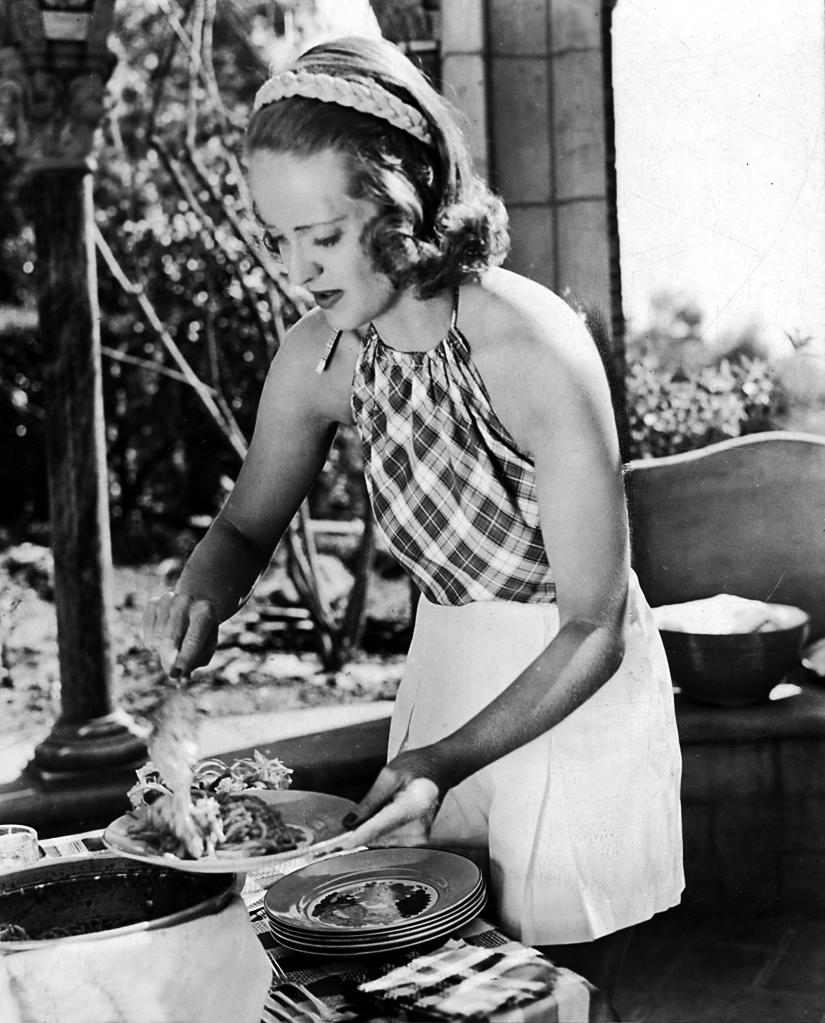
Bette Davis’ decision was met with dissatisfaction from Warner Brothers. To prevent Bette from seeking temporary work, Messrs, Denton, Hall and Burgin, solicitors for Warner Bros. and First National Pictures, issued Bette an Ex Parte Injunction on September 9th of that year. Meanwhile Jack Warner and his wife Ann had set up momentary residence at William Randolph Hearst’s commodious property outside of London. Convinced that the whole situation was being blown out of proportion, Mrs. Warner earnestly tried to persuade her husband to put a stop to the action, but Jack remained adamant about going ahead with proceedings. As a means to confirm his power, Jack Warner enlisted Sir Patrick Hastings as the barrister. Noted as one of Britain’s most renowned barristers, Hastings served as a model for Sir Wilfrid Robarts, the lawyer in the 1957 film Witness For the Prosecution.
If Jack Warner was going to hire a barrister of authority, Bette made sure that her lawyer would be of equal supremacy. Signor Toeplitz recommended Sir William Jowitt, one of the best legal minds in the country. Bette was impressed with Jowitt’s experience in the field and felt confident about him handling her case. However, she soon found out that attached to his services was a ten-thousand-dollar retainer. In Hollywood, Bette was the subject of criticism. Gossip moguls for newspapers and magazines had continuously contextualized on Bette’s affluent wealth and had painted her as a spoiled rich girl, but in truth, she was financially broke. That kind of money was out of reach for Bette. There was no way that she would be able to afford the cost of hiring Jowitt without assistance. To make matters worse, both Bette and Ham were receiving no income. The only way out of this perplexing situation was for Ham to return to New York to try and pursue employment as a means to acquire money to help support his wife. Although Bette largely depended on Ham, she soon realized that Ham’s decision was the most sensible thing to do. In the meantime, Bette had to survive on the minimal savings she did have, and this meant downsizing to a tiny cell at the Park Lane, where she insisted on absolute silence.
Since Ham’s departure, Bette seemed to dwell over the court case. She knew she was facing an uphill battle. The entire motion picture industry would be backing Warner Bros. Given her notoriety for declining scripts that she deemed inferior, no other studio in Hollywood were willing to take a chance on her. What some of these top movie producers didn’t understand is that Bette cared about her career. She just wanted to be treated equally like a star and have more control over her projects. If any form of slavery on her part was to continue, Bette would not fulfill Warner Bros. demands. Trying to get Jack Warner to understand this was the hard part. He constantly underestimated Bette’s dedication to her craft. It was only on the day of the trial that Jack Warner would come forth and openly admit that Bette was a serious actress who fully embraced her work.
On the day of her hearing, Bette felt like she was pitted against top authority figures. As she entered the large English courtroom that was fitted with wood-paneled walls and leaded windows, Bette began to cower. The entire room emanated a foreboding and intimidating ambiance. Years later, Davis described the situation as one of the most painful experiences of her life. It was clear from the start that Bette would have to fight hard. She was dealing with the elite who succeeded in tearing shreds out of your self confidence. Throughout the hearing, Bette was depicted as being spoiled, uncooperative and demanding. These words were demoralizing. Bette had worked like a slave driver for the studio and now she discovers that Jack Warner displayed no ounce of gratification for her services. It was obvious that Warner had failed to look at the big picture. Bette was eager to appear in films that had substance and that was guaranteed to be financially successful, but she refused to work against her will in what was destined by critics to be a disastrous flop.
The entire court battle lasted three full days, but for Bette Davis the nightmare seemed to be never-ending. During this time everyone involved had a chance to express their plight in a open court room. Amidst this on going crisis a lawyer named Gerald Gardiner appeared out of nowhere and proceeded to close in on Sir Patrick. He was representing Signor Toeplitz. According to Davis’ autobiography The Lonely Life, Gardiner was condemned to silence. His speech was deemed irrelevant and his presence there was highly unnecessary. Before he could utter another world he was quickly reminded that his client was not on trial and was not among the parties concerned in the case.
Sir William was the perfect representative for Bette’s case. He delivered his speech with such heart and really fought for his clients rights. Although he was no authority in the acting industry, he clearly understood Bette’s plight and addressed the fact that it was wrong to force an actress or any employee to work against their will. Perhaps the most crucial point was when he detoured away from Bette’s impotency in choice of material and evoked the topic of freedom. He distinctly outlined that the studio was holding Bette prisoner. It was acceptable for a contract to come with a few stipulations, but he viewed Bette’s contract as a life sentence. Among the rules that were reinforced was that Bette was denied access in to any theatrical shows and was banned from making private appearances. Even a simple candid photograph taken at home was deemed improper and considered an appearance or arranging a party for a charity was more or less breaking the guidelines. Whatever Bette wished to pursue she would be required to seek permission before proceeding. At the core of this scenario was that Jack Warner owned Bette, which often made her feel like she was his guardian.
In The Lonely Life, Bette remembered that Sir William’s speech stultified both Jack Warner and Sir Patrick. Deep down Jack Warner knew he was partly to blame, but he was not one to openly admit that he was at fault. Instead he sat through the entire hearing looking uncomfortable. As Sir William hammered every aspect of the contract, he cringed more and more. Patrick Hastings looked as though he was ready to tear Bette apart, but the only way he could unleash his feelings was by taking off his wig and throwing it across the courtroom. He’s actions caused quite a commotion and its a scene that was permanently ingrained in Bette’s mind.
The verdict came as no surprise to anyone. It was decided that the final decision would be announced after the weekend. The thought of waiting to hear the unwelcoming news only increased Bette’s anxiety. She knew she was going to lose, but she would have preferred to hear of her defeat sooner rather than later. During this time Bette was residing at the Tudor Close in Sussex. Her mini apartment was less expensive than her previous dwellings and its ideal location boasted absolute seclusion and privacy, an aspect that was a necessity at this particular period in her life. In an attempt to elude her frustration and anguish, Bette found pleasure in taking leisurely walks along the beach. Coincidentally, Bette was basking in the sunshine at the beach when the results of the court case were reported. Although she had an inkling of what was going to happen, she was still overcome with sudden waves of melancholy. Her biggest worry was her financial status. She owed a large fortune to Sir William for his services and coupling this was the fact that she was morally bound by law to pay Jack Warner’s costs, which alone would make a tremendous dent in her bank account. After taking all this into account, Bette regretted her decision to fight. She wished she could turn back the clock, but that was not possible.
During her time of despair, Bette relied on a great support team to help carry her through. Her savior at this point was her mother Ruthie. Although Ruthie was back in the United States, she was a pillar of strength for Bette and remained her tower of comfort. This experience certainly made her realize the importance of a mother. Absolutely nobody could fulfill Ruthie’s role. She always replied to Bette’s letters, offering her sage advice and assuring her that everything will turn out alright in the long run. Ruthie tried her hardest to instill positivity in her daughter. Her words may not have fully alleviated Bette’s feelings, but they were a tremendous help.
Back in Hollywood, the studios were having a field day celebrating Bette’s defeat. The sardonic behavior of others really increased Bette’s dysphoria. She was determined to fight the case, but her current loneliness was weighing a heavy burden on her. At that instance she called her mother and insisted that she come over and stay with her while she appealed. Ruthie never gave it a thought nor did she need convincing. Her place at that moment was with Bette and that was the only thing that mattered. Those days before Ruthie’s arrival were punctuated with sorrow. Bette was alone and depressed. When she wasn’t walking along the beach or cycling she was hounded by the press who kept descending upon her tiny hotel situated by the sea.
In the midst of this gloomy situation entered an unexpected visitor who had arrived to rescue Bette from ruin. Standing in the lobby was no other than George Arliss, the man who was responsible for launching Bette’s career. Once again Arliss was here to release Bette from all her troubles. From that moment on, Arliss became the instrumental force behind Bette’s career resurrection. The two sat down and engaged in a long discussion. He advised Bette to return to the United States. She would be in a much better position if she accepted her defeat and went back and faced the music than if she decided to stay in the United Kingdom and fight for justice. Arliss convinced Bette that the key to success was positivity and failure is the root to negativity. Bette needed to have complete confidence in herself in order to further succeed in the acting business. These were the most encouraging words Bette had heard in a long time. Finally she came to the realization that George Arliss was right. Shortly after, Bette cabled her mother Ruthie about her homecoming and told her to stay in New York.
On a cold November day, Bette boarded the Aquitania and sailed to the United States. By the time she arrived home, Ham had released one record with Tommy Dorsey, but he was still adamant about launching a successful career of his own. Due to the very few opportunities Ham had in California, the most sensible thing to do was remain in New York, where he had a greater prospect to achieve. This arrangement meant that Bette and Ham would be separated again, though that was the least of their worries at that point. Ham was more interested in making a name for himself and Bette was overwhelmed with nerves about what was awaiting her in Los Angeles.
During the flight home to California, Bette sat nervously next to Ruthie. She was constantly weaving different scenarios into the chapter of events that she depicted will happen when she arrived back in Hollywood. Ruthie kept reminding her to eclipse all negativity and focus on the positive. If Bette had a slight inkling of what was awaiting, she wouldn’t have the spent the entire journey in a worrisome state of mind. Fortunately, her return was met with surprising results. Not only did Warner Bros. give her a warm welcome, they relieved her of all financial pressure by paying for the Kings ransom and Sir William’s retainer. For once their feelings were shifted towards Bette. They knew that Bette was serious about her career and only wanted to accentuate her star power. They also realized the dire situation she would be in if she had to pay the large sum of money. Bette was comforted to know that she was an asset to the studio and not just another employee. This sort of reception really made her change her outlook on her future as an actress.
At first the court situation threatened to thwart any plans that were on the horizon, but in the long run, Bette was not completely vanquished. Failure was a word that was not in Bette’s vocabulary. Success was her destiny and she was determined to conquer the world. That was exactly what she did.
“In a way, my defeat was a victory. At last we were seeing eye to eye on my career. I was aching to work and they were eager to encourage me.”
Instead of feeling restricted, Bette was now experiencing the newfound joys of being a Warner Bros. employee. Compatibility in the workplace is important. If your boss is not compliant of your every wish, it often impacts your ability to succeed or furthermore, forces you to become demoralized and lose inspiration. In Bette’s case, the close affinity between her and Jack Warner was a stepping stone to eminence. Bette’s career was her life’s blood. She was yearning to get back in front of the camera and the studio made sure that there were no barriers in her way.
In 1937, Bette Davis made her motion picture comeback with Marked Woman. Warner Bros. had recently purchased the screen rights for a film based on the Italian born gangster and bootlegger Lucky Luciano. Jack Warner reportedly found inspiration in the story and envisioned it to be the perfect material to bolster Davis’ career. Upon reading the script, Davis herself was impressed and seen Marked Woman as the springboard to endless dramatic possibilities that will enhance her potential as an actress. The predictions were right. The public reacted positively to Bette’s performance and Warner was generally pleased with her ascending popularity.
Marked Woman was of symbolic importance to Bette Davis’ career and opened up doors that led to a world of opportunities. Her next picture was 1937’s Kid Galahad, a prizefighting film, which pitted her against acting veteran Edward G. Robinson. There are a myriad of parallels between these two productions. Both vehicles gave her the boost she needed to build her public image. Once she had generated enough favorable publicity, the studio decided it was time for her to make a splash in the comedy genre. Bette always maintained that she would have liked to have been given more of a chance to explore her comedic roots. When she did venture into that territory, she was cast in farcical roles that didn’t suit her type of acting. Although, Bette stated that farce was not her forte, she was elated to secure the part of Joyce Arden in It’s Love I’m After. This was the third movie she made with Leslie Howard and it was the first time she shared the screen with close friend and soon to be frequent co-star Olivia de Havilland.
After starring in a succession of critically acclaimed films, Bette Davis had a premonition that luck wouldn’t remain on her side. As it turns out, Davis’ forecast for the imminent future were accurate. That same year Warner Bros. cast her in That Certain Woman, a remake of Gloria Swanson’s 1929 film The Trespasser. The end result was disastrous. The picture was a financial failure. The only redeeming feature was that Bette was given Henry Fonda as her leading man. Bette had known Fonda from her early days in the theatre, but once they became famous they traveled down separate career paths. For Bette, working with Fonda was a real blessing, but the inferior script hindered any chance of success.
At the studio, Bette Davis was working on full speed and was ascending to the top echelon of players, but on the home front, Bette was fighting a tumultuous battle with her first husband Harmon ( Ham ) Nelson. Although their marriage had been crumbling for a while, Bette continued to cling to hope that a divorce would not come to fruition. Despite the fact that she still cared for Ham, the light had burned in their relationship. At the core of their marital crisis was Bette’s success and accomplishments. Ham was a struggling musician who was fighting for recognition. He often felt like he was competing against Bette and was losing the battle. Exacerbating these problems was Bette’s heavy schedule. Harmon’s perspective on married life was that a wife should be dutiful twenty-four hours a day, seven days a week. When Bette was unable to fulfill his wishes, he moved out of the Coldwater Canyon house they shared together.
Instead of staying home and letting her marital problems with Ham weigh on her, Bette returned to work in the midst of crisis. No man was ever going to try and tear her away from her career. Her determination knew no bounds and whenever an opportunity came along, Bette was always the first to pursue it. Around the same time Paul Muni was in preparation to play the titular role in 1937’s The Life Of Emile Zola. Bette’s latest endeavour was to land the small part of Nana in the film. Davis reportedly put forth her proposition to the studio and approached Muni himself, but her requests were denied.
Shortly after, a bigger and better opportunity arose. There was a nation wide search for the perfect actress to play the coveted role of Scarlett O’Hara in a civil war epic entitled Gone With The Wind. Warner Bros. had initially promised Bette the lead, but her hopes had vanished when Warners had dropped the option. Almost everyone in Hollywood had tested for the part. The hunt was over when Vivien Leigh was cast. Once again Bette’s feelings were crushed. This would have been a dream come true for Bette and now that chance was shattered. At this stage in her career, Bette was use to hard knocks, but what infuriated her the most was the broken promise. To Bette, this was pure robbery; though deep down she realized that Leigh exuded the fragility and all the right qualities that was needed to portray Scarlett.
As it turns out, Bette Davis’ screen test for Scarlett O’Hara served as a stepping stone to an opportunity that was on the horizon. Warner Bros. had recently acquired the rights for the 1938 production Jezebel. The films protagonist Julie Marsden closely mirrored Scarlett in many aspects. She embodied the manipulative Southern Belle, who defies societal rights and dominates everyone around her. When she missed out on the role of Scarlett, Bette felt like she was ascending to the bottom heap, but once she was assigned the part of Julie, she was taking a step in the right direction. Her consultation prize was a second Academy Award.
Throughout the years, Bette Davis often exclaimed that Julie Marsden was the best part she had since playing Mildred in Of Human Bondage. She also credited William Wyler for being the first director to make her realize that she was an actress with full potential and not just a personality. Wyler instilled a great deal of qualities in Bette and she was forever in debt to him for his sound advice and all that he taught her.
For Bette Davis, Jezebel was the beginning of a lot of things. It was the beginning of career fulfillment and happiness, but more importantly, it was the beginning of the triumphant path that she would follow for the rest of her life.
The story of the infamous court case battle weaves tales of hope, sacrifice and triumph to produce a compelling portrait of a great dispute that would ultimately end in victory. Less than ten years later a similar event transpired when Bette Davis’ close friend Olivia de Havilland challenged the studio system and took Jack Warner to court over an immoral suspension clause and won.
Bette Davis died on October 6th, 1989, at the American Hospital in Neuilly-sur-Seine in France, from breast cancer. She was 81 years old.
This post is dedicated to the memory of Patricia Nolan-Hall – known by many as Paddy Lee. She was a prolific blogger, a talented writer and a friend to all. Her passing on March 7th was a tremendous loss to the classic film and blogging community, but the many hours of reading she left behind is a gift to us bloggers. I will always value her constant support and encouragement. Rest In Peace Paddy.

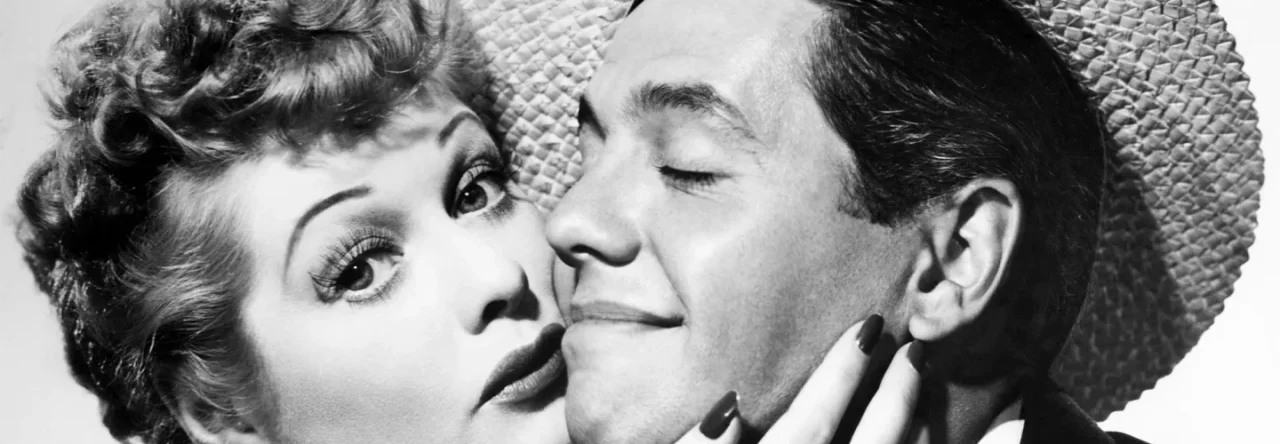
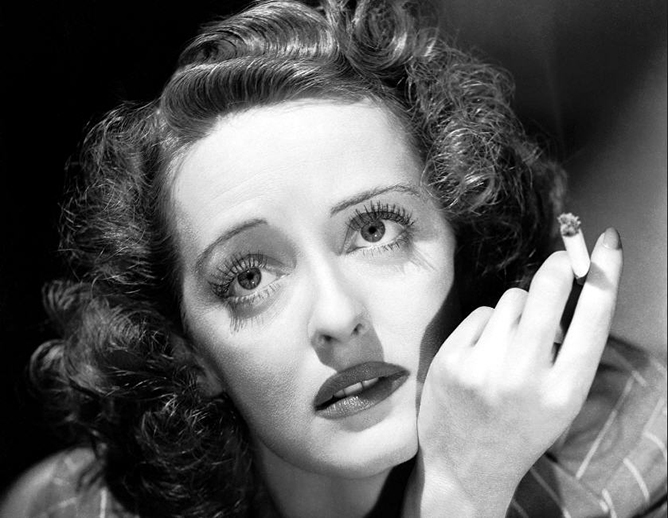




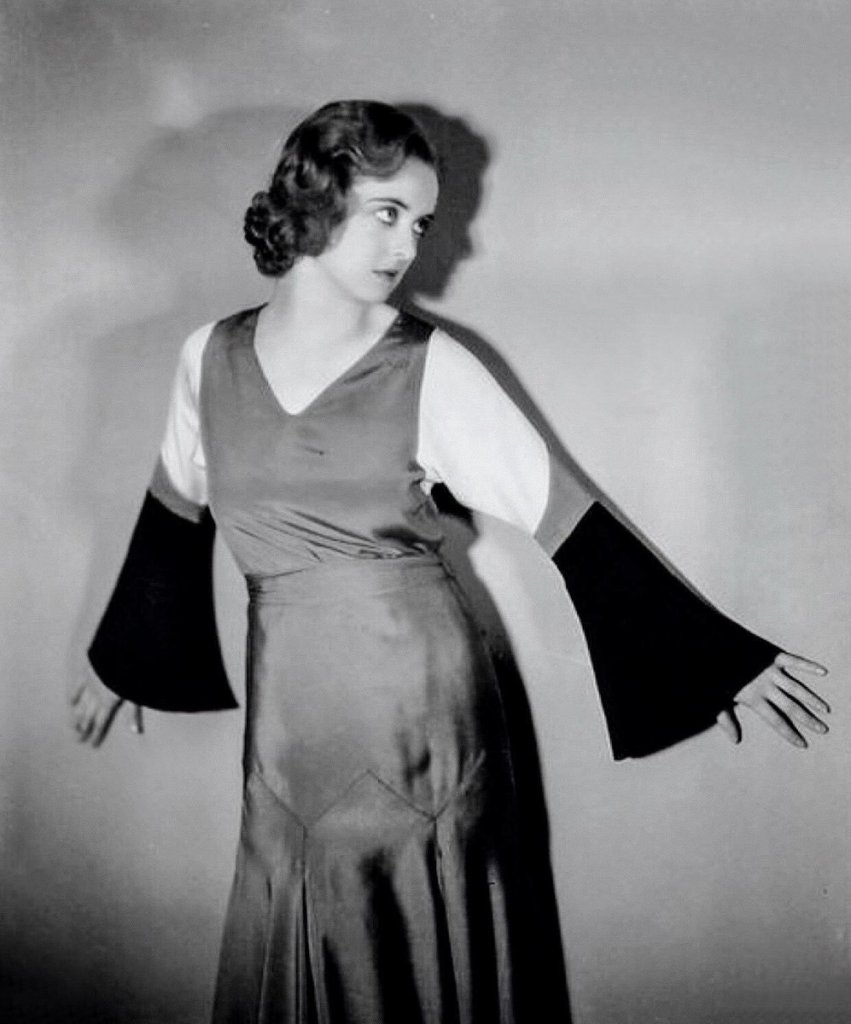
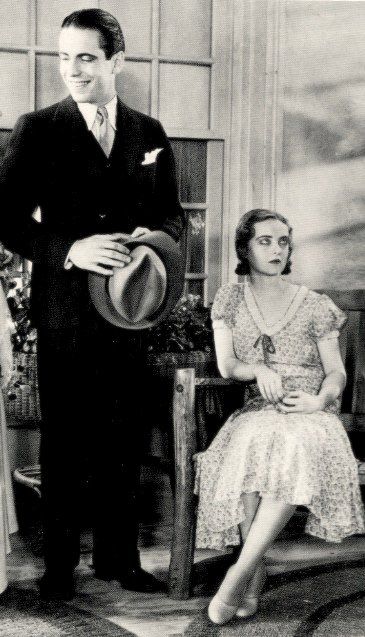

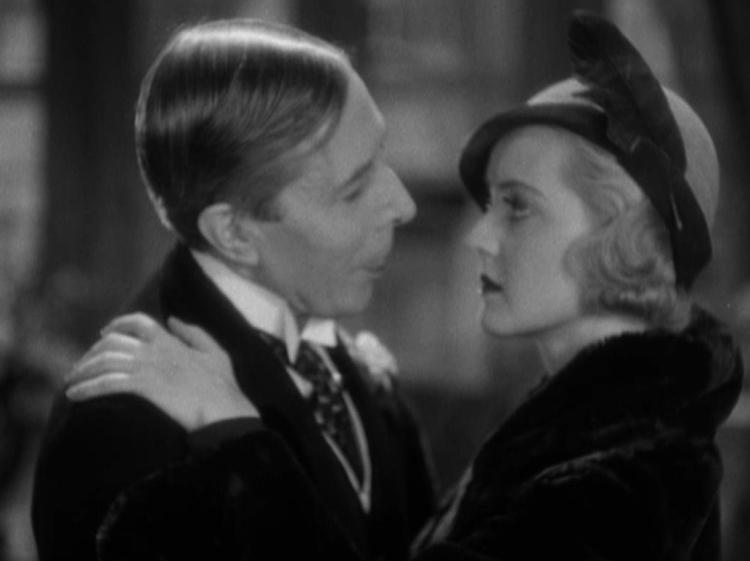
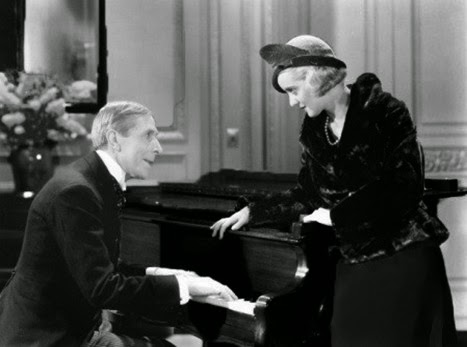


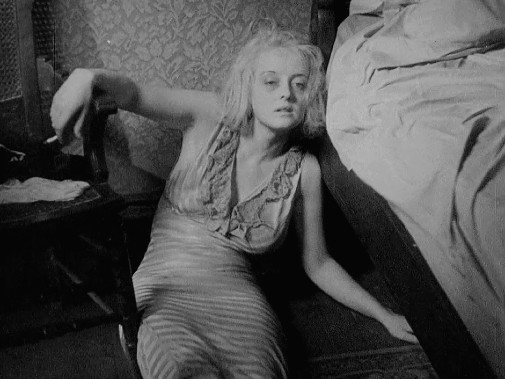
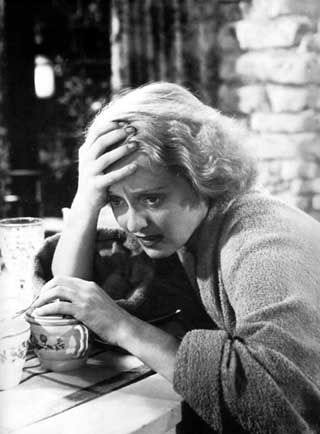
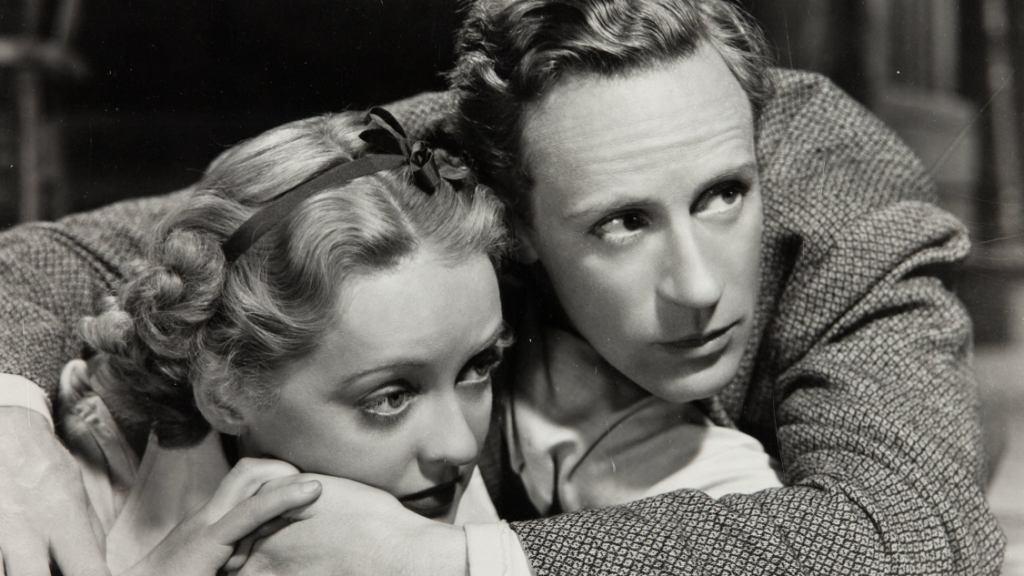

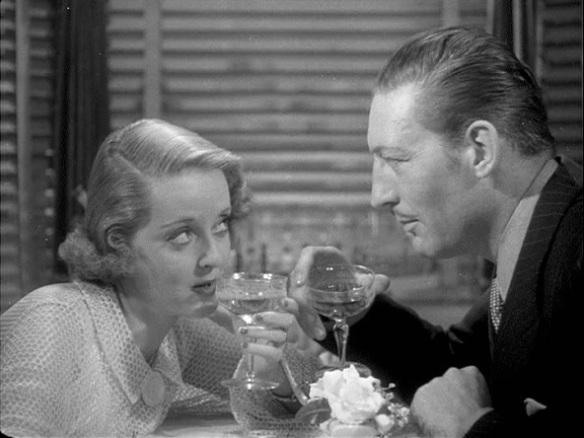

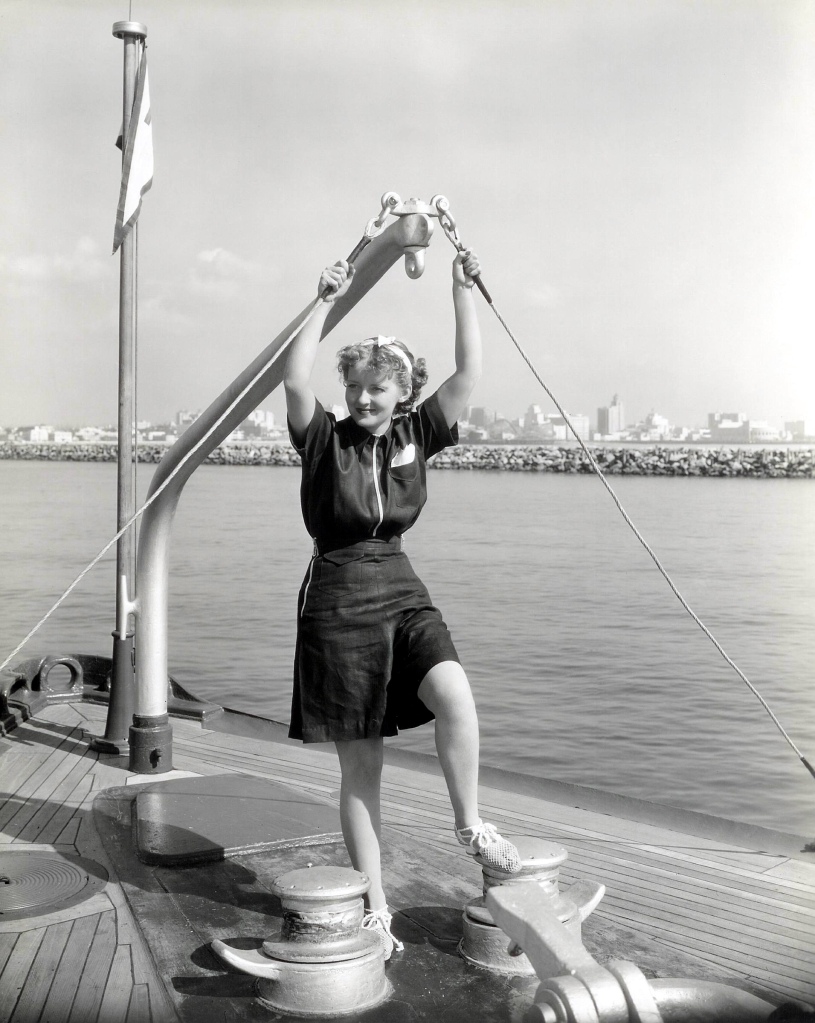



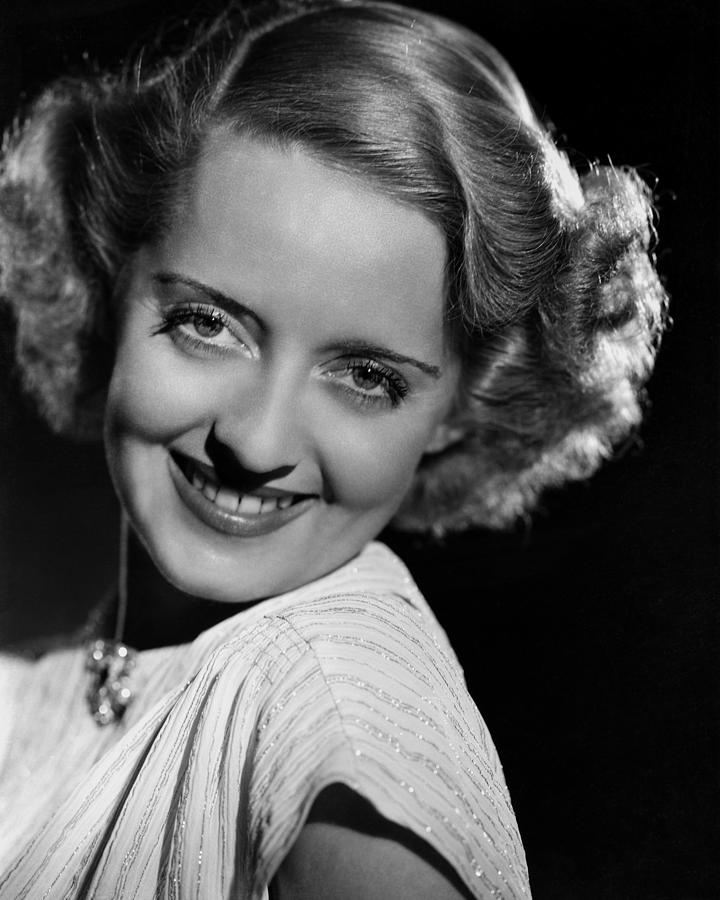

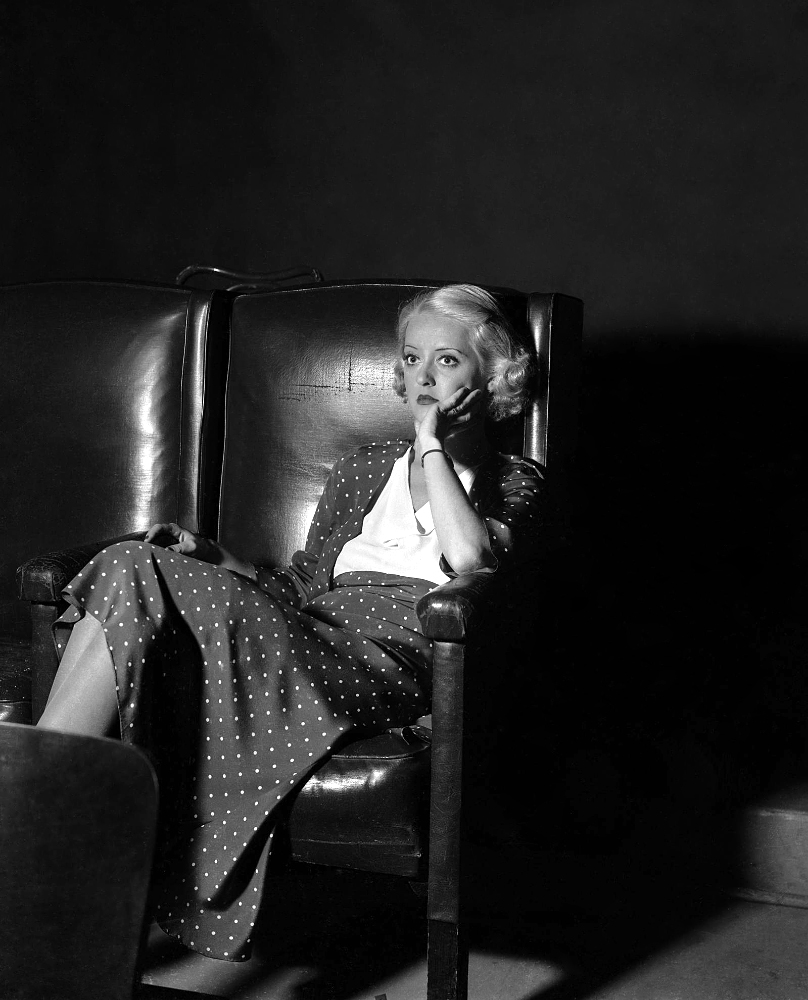

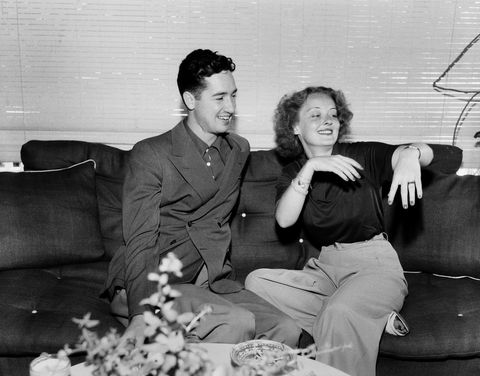
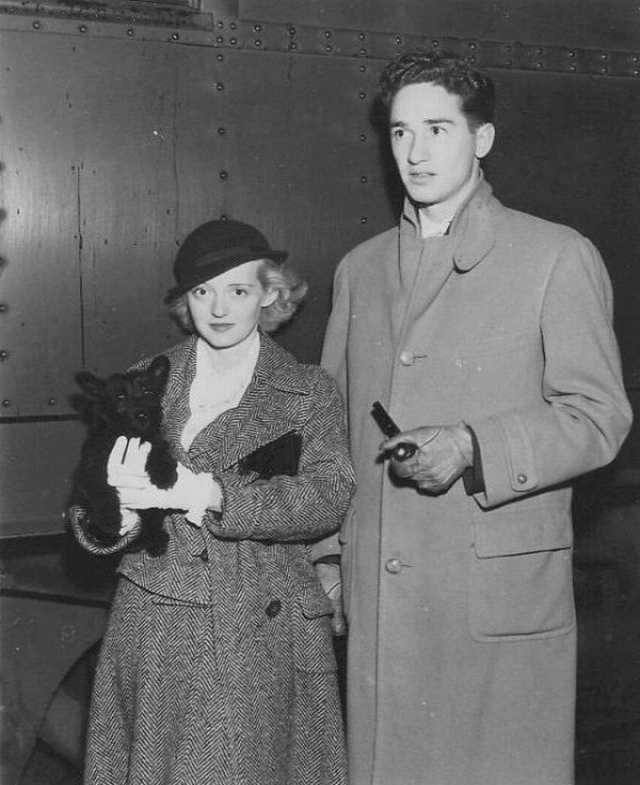





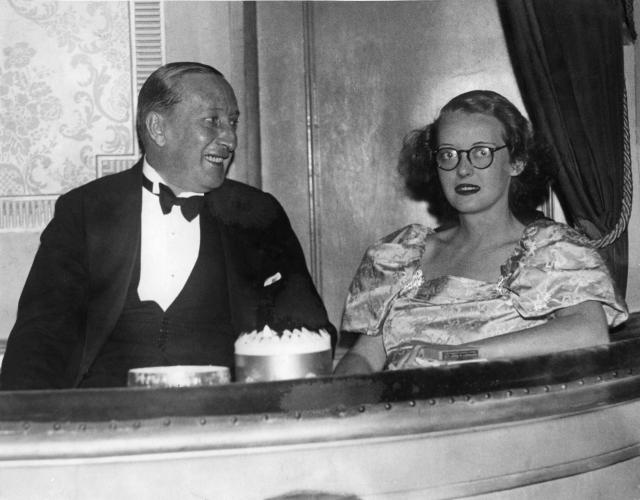
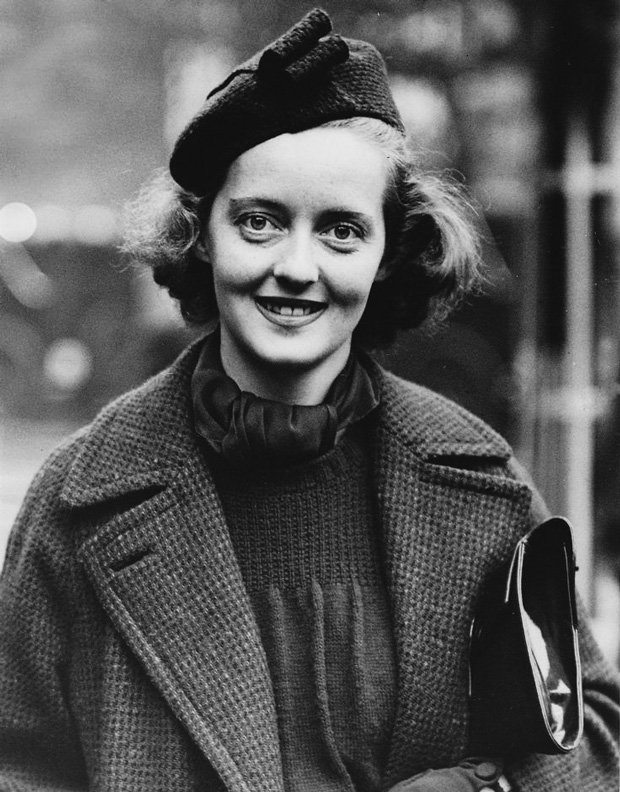
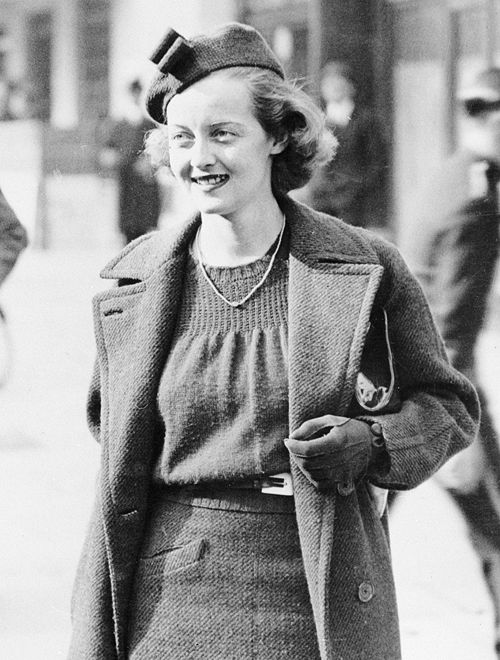














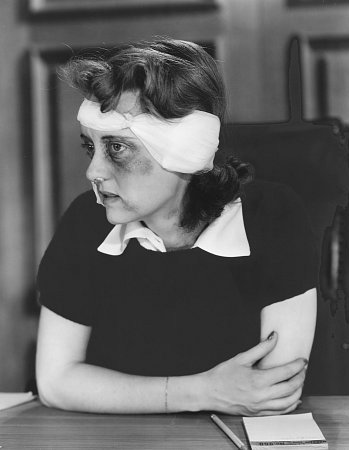

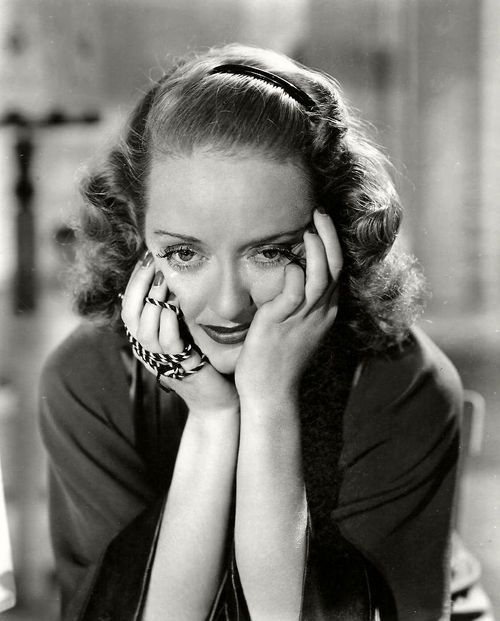
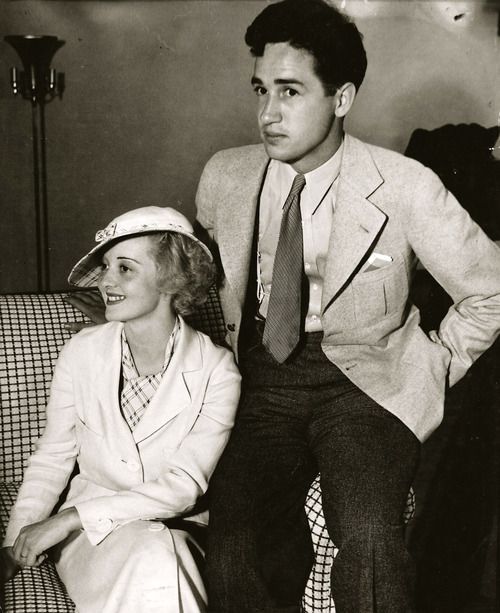

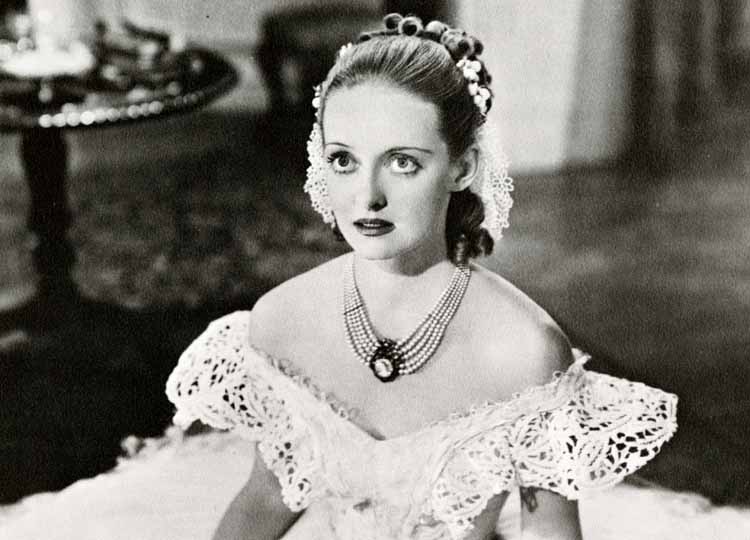

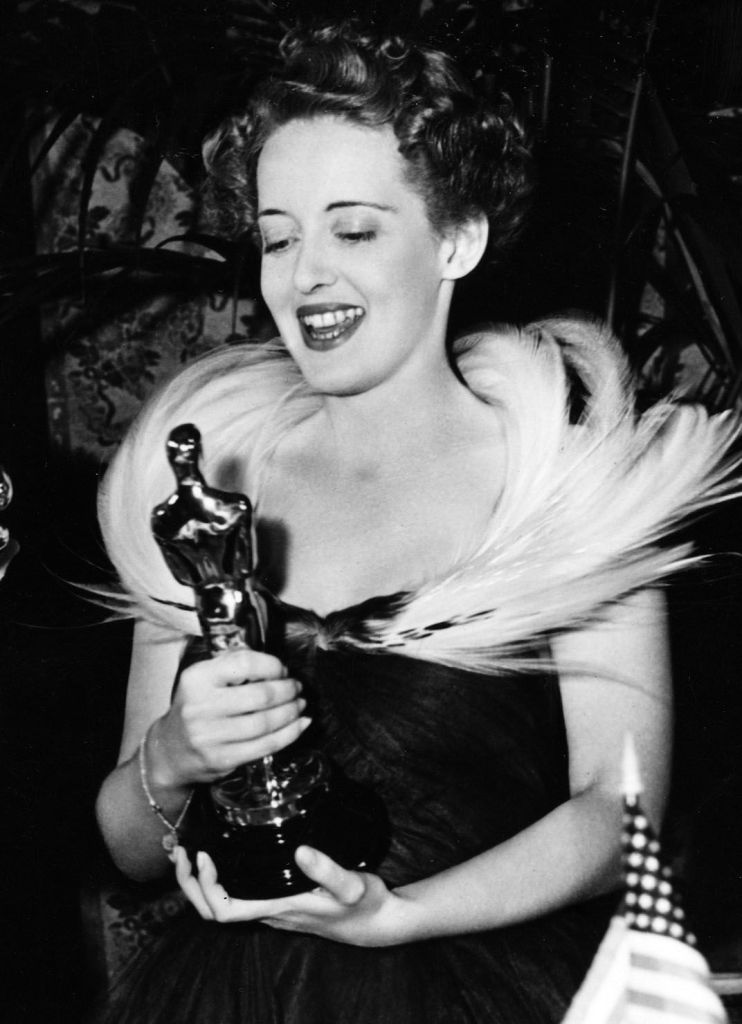




Fascinating! Bette Davis was quite the lady and so was Paddy Lee. Off topic, but did you get my e-mail about doing a Judy Garland Centenary Blogathon?
LikeLike
Not to take away from Paddy Lee or anything, but I thought I should ask while I had your attention. 🙂
LikeLike
Actually, yeah, it does take away from Paddy Lee, but I’m chagrined that I can’t delete my comments. Derp. Sorry.
LikeLike
Thanks for reading Rebecca. Unfortunately I didn’t receive your email. You can send me an email regarding the Judy Centenary Blogathon to crystalpacey3@gmail.com. I have been thinking about doing a centenary blogathon for Judy. It’s certainly a great idea.
LikeLiked by 1 person
Oh good, thanks, Crystal! WordPress has been weird with their Contact page lately. I’ll definitely e-mail you.
LikeLike
I loved this interesting and informative post! Bette Davis has long been my favorite actress, and I always appreciate learning more about her. I love Bad Sister and had no idea that Karl Freund was responsible for her landing the part, and the details about her fight with Warner Bros. were fascinating. Good stuff!
LikeLike
Paddy was a huge Bette Davis fan, so I know she must love this post! I have read a lot about Bette Davis and her fight with Warner Bros. and you certainly do it justice. Between Jack Warner’s treatment of his stars such as Bette Davis and the animators at Termite Terrace, I have to admit I have never had a high opinion of him!
LikeLike
It’s hard to imagine Bette Davis not making it in Hollywood. But, as you pointed out, she survived because she learned to be tough. Fabulous post!
LikeLike
Survivor extraordinaire. What a dame, what a woman. Bette is ever fascinating. I thoroughly enjoyed your look at her career.
Aurora
LikeLike
Bette Davis was a huge part in my discovery of old Hollywood. I told that story in one of my episodes of Sports Analogies Hidden in Classic Movies. Caftan Woman had a classic comment about my sports comparison, and that’s why it was featured prominently in my contribution to this tribute!
LikeLike
What a strong woman! That was a very interesting read, Crystal.
LikeLike
Well Done Crystal from Rex
LikeLike